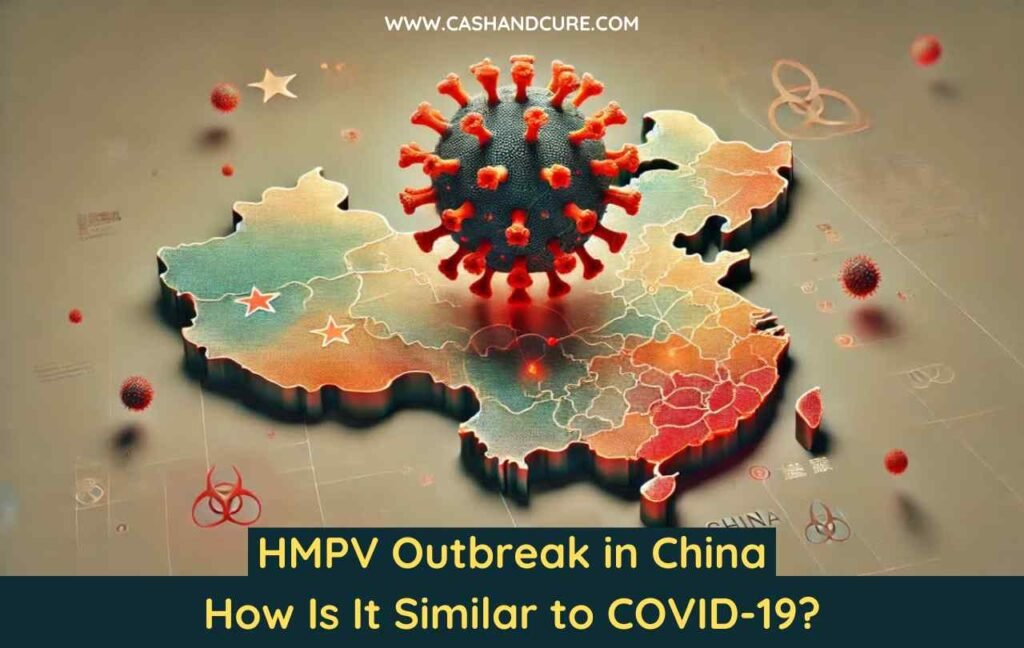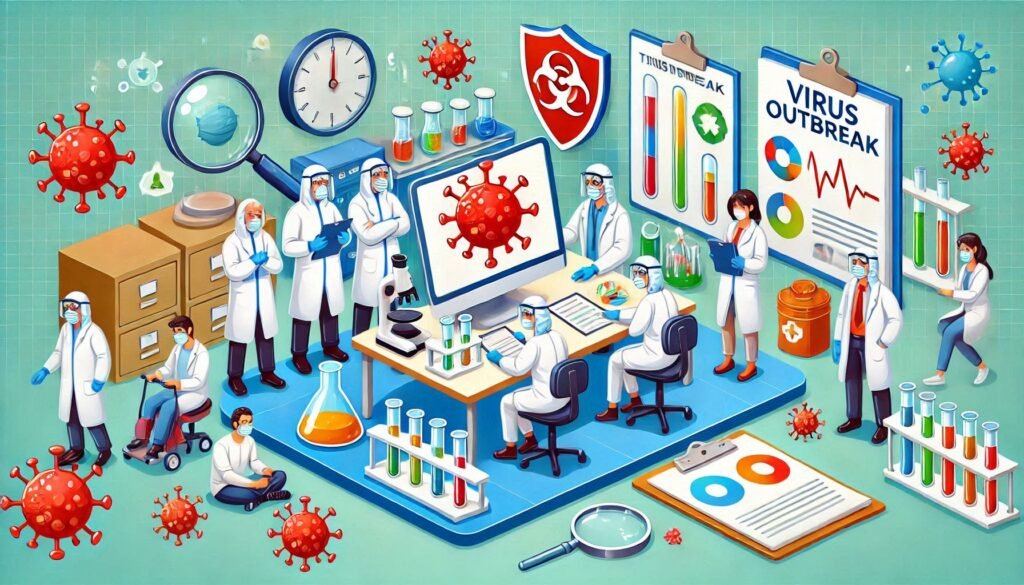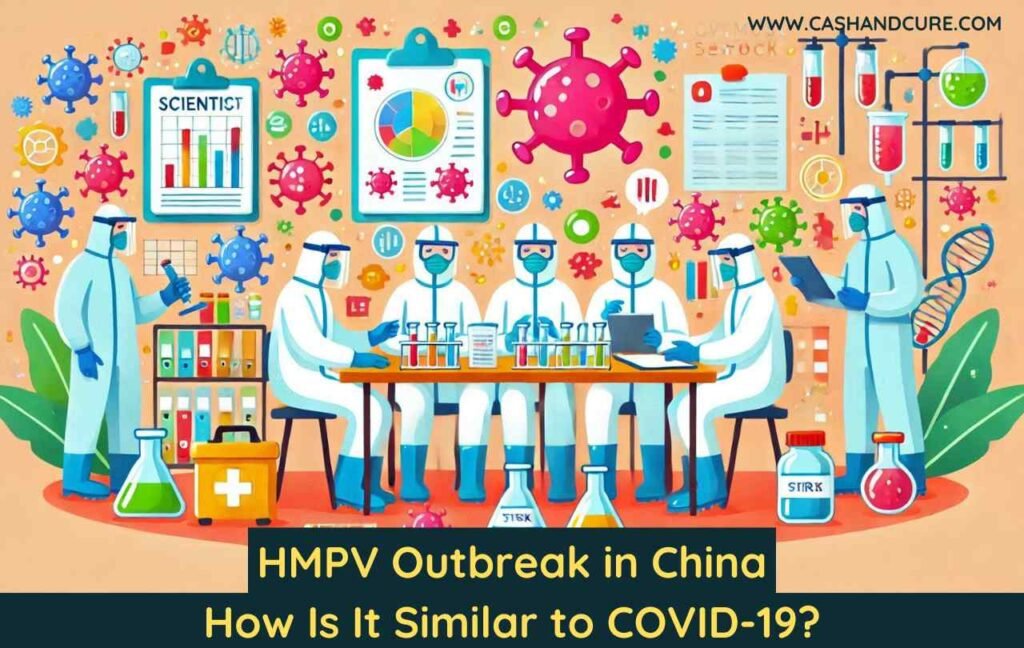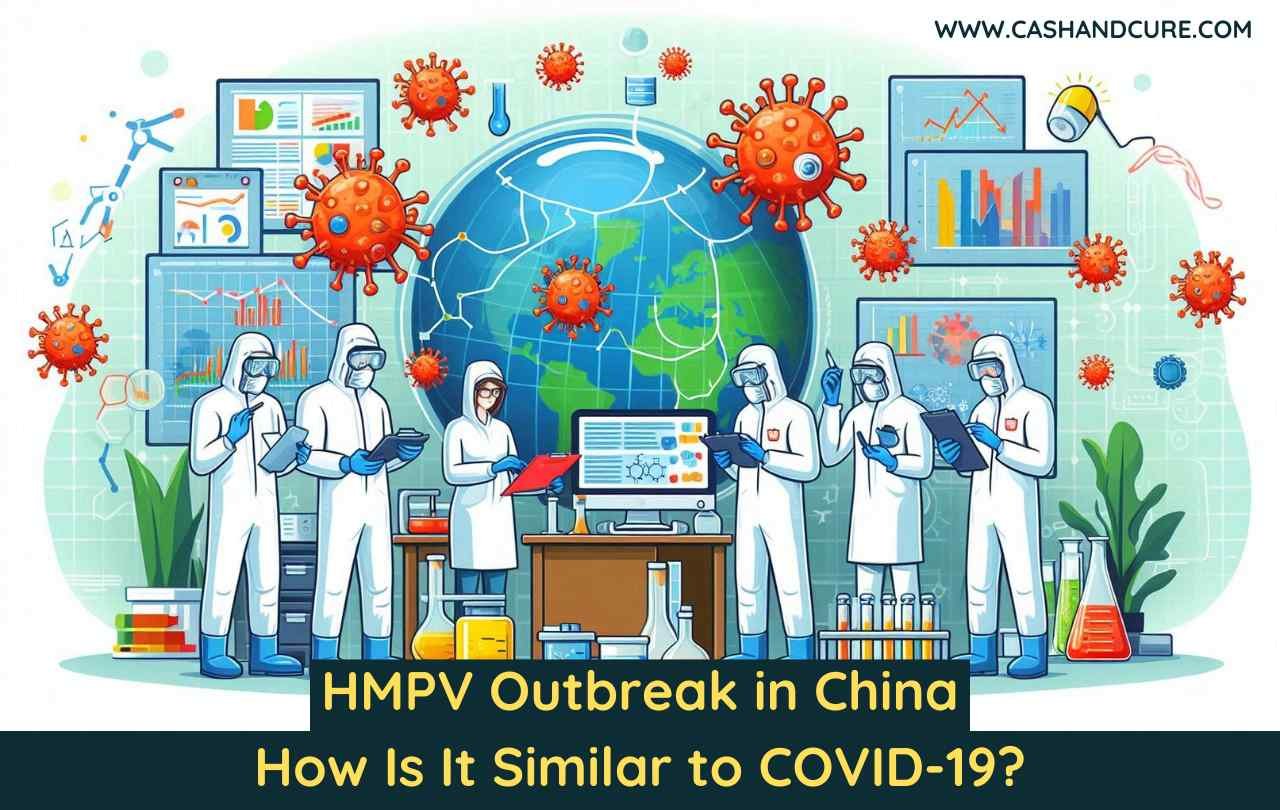HMPV Outbreak in China: How Is It Similar to COVID-19? Is There Any Vaccine? The recent reports of a Human Metapneumovirus (HMPV) outbreak in China have raised global concerns. People are questioning whether this respiratory virus could be the next pandemic. This article explores the nature of HMPV, how it compares to COVID-19, and the current status of vaccines and treatment options.

What Is HMPV?
Human Metapneumovirus (HMPV) is a respiratory virus first identified in 2001. It belongs to the Pneumoviridae family, which also includes the Respiratory Syncytial Virus (RSV). HMPV typically causes mild to moderate respiratory illness but can lead to severe complications in certain high-risk groups, including:
- Infants and young children
- Elderly* individuals
- People with weakened immune systems

Key Facts About HMPV:
- Transmission: Spread through respiratory droplets, direct contact, and contaminated surfaces.
- Symptoms: Include cough, runny nose, fever, wheezing, and difficulty breathing.
- Seasonality: Cases are most common during late winter and spring.
HMPV Outbreak in China
Reports from China indicate a significant surge in HMPV cases, prompting health experts to investigate whether this is a novel strain or a more virulent version of the virus. While the virus itself is not new, the outbreak’s scale and severity have caught the attention of global health authorities.
Why Is This Outbreak Alarming?
- Increased Cases: Hospitals in affected regions report a spike in respiratory illnesses linked to HMPV.
- Similarities to COVID-19: The respiratory symptoms of HMPV overlap with those of COVID-19, making it challenging to differentiate between the two without testing.
- High-Risk Groups: Vulnerable populations, such as children and the elderly*, face severe complications, and straining healthcare systems.

How Is HMPV Similar to COVID-19?
Although HMPV and COVID-19 are caused by different viruses, they share some similarities:
1. Transmission
Both viruses spread through respiratory droplets, close contact, and contaminated surfaces. Preventive measures like wearing masks, practicing good hygiene, and avoiding crowded places are effective against both.
2. Symptoms
HMPV and COVID-19 cause respiratory symptoms such as:
- Cough
- Fever
- Shortness of breath
However, COVID-19 symptoms can include loss of taste and smell, which is not associated with HMPV.
3. High-Risk Groups
Both viruses disproportionately affect the elderly*, immunocompromised individuals and those with underlying health conditions.
4. Diagnostic Challenges
Distinguishing HMPV from COVID-19 requires laboratory testing, as their symptoms are highly similar.
Is There a Vaccine for HMPV?
Currently, there is no approved vaccine for HMPV. Research is ongoing, with several candidate vaccines in preclinical and clinical trials. Unlike COVID-19, where vaccine development was expedited due to global urgency, HMPV’s vaccine progress has been slower.
Why Is Vaccine Development Challenging?
- Lack of Awareness: HMPV has not garnered the same attention as COVID-19, leading to limited funding and research.
- Complexity of the Virus: Developing a vaccine that provides long-lasting immunity against HMPV is scientifically challenging.
In the absence of a vaccine, prevention strategies remain the best defense.
Treatment Options for HMPV
There is no specific antiviral treatment for HMPV. Management focuses on relieving symptoms and preventing complications. Common treatments include:
- Over-the-counter medications for fever and pain
- Humidifiers to ease breathing
- Oxygen therapy in severe cases
High-risk patients may require hospitalization, especially if they develop complications like pneumonia.
Preventive Measures
1. Good Hygiene Practices
- Wash hands frequently with soap and water
- Use hand sanitizers when soap is unavailable
2. Avoid Close Contact
- Stay away from infected individuals
- Avoid touching your face, especially your eyes, nose, and mouth
3. Disinfect Surfaces
Regularly clean commonly touched items like door handles, phones, and countertops.
4. Boost Immunity
- Eat a balanced diet
- Exercise regularly
- Get adequate sleep
FAQs About HMPV Outbreak in China
No, HMPV was first identified in 2001. However, the current outbreak in China has raised concerns about its spread and severity.
HMPV and COVID-19 are caused by different viruses. While they share similar symptoms, HMPV does not include unique signs like loss of taste and smell.
Currently, no vaccine exists for HMPV, but research is ongoing.
Follow preventive measures like practicing good hygiene, avoiding close contact with sick individuals, and boosting your immunity.


Leave a Reply
You must be logged in to post a comment.